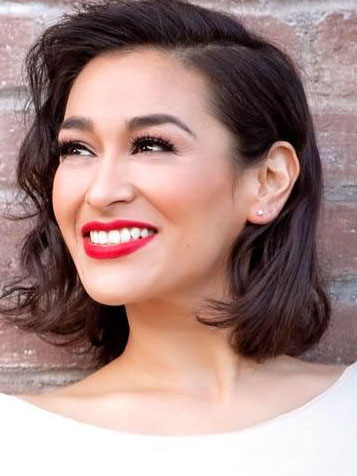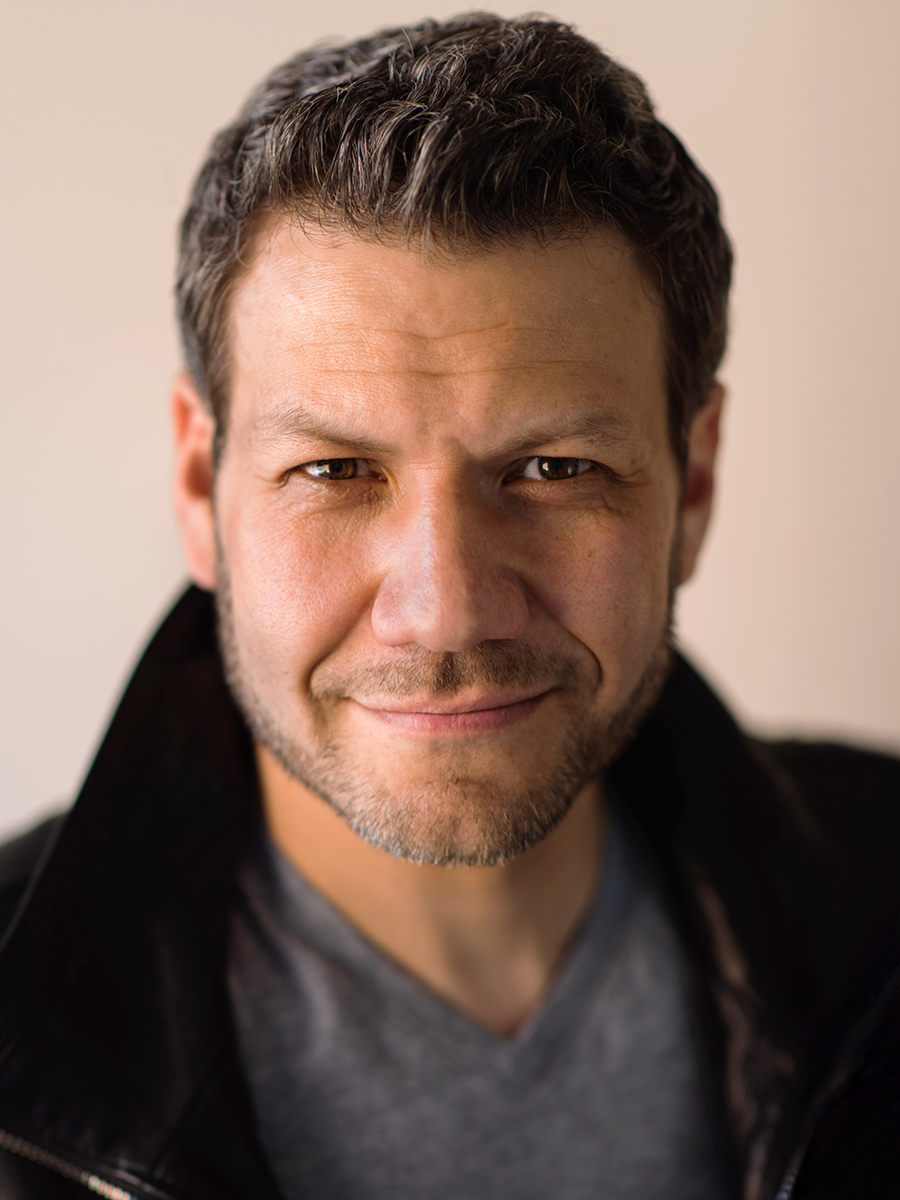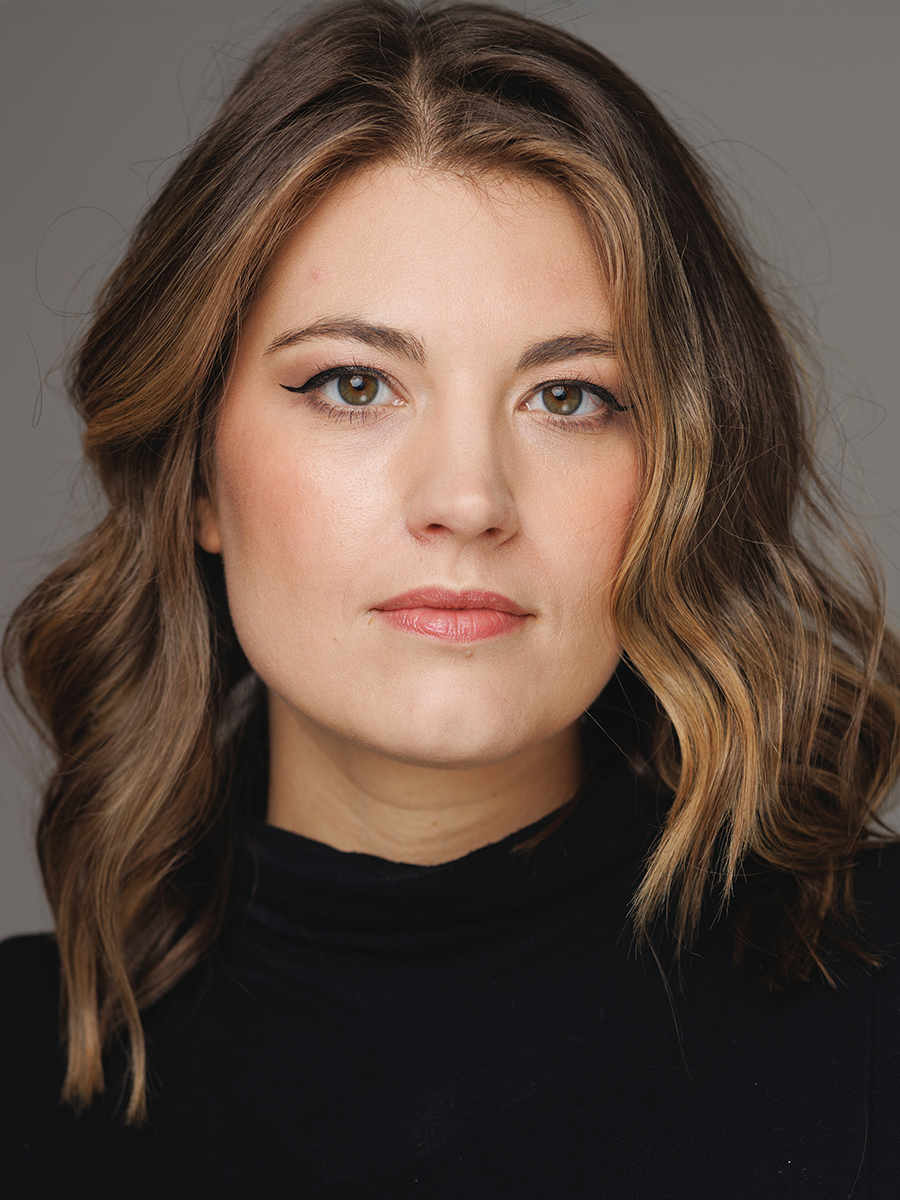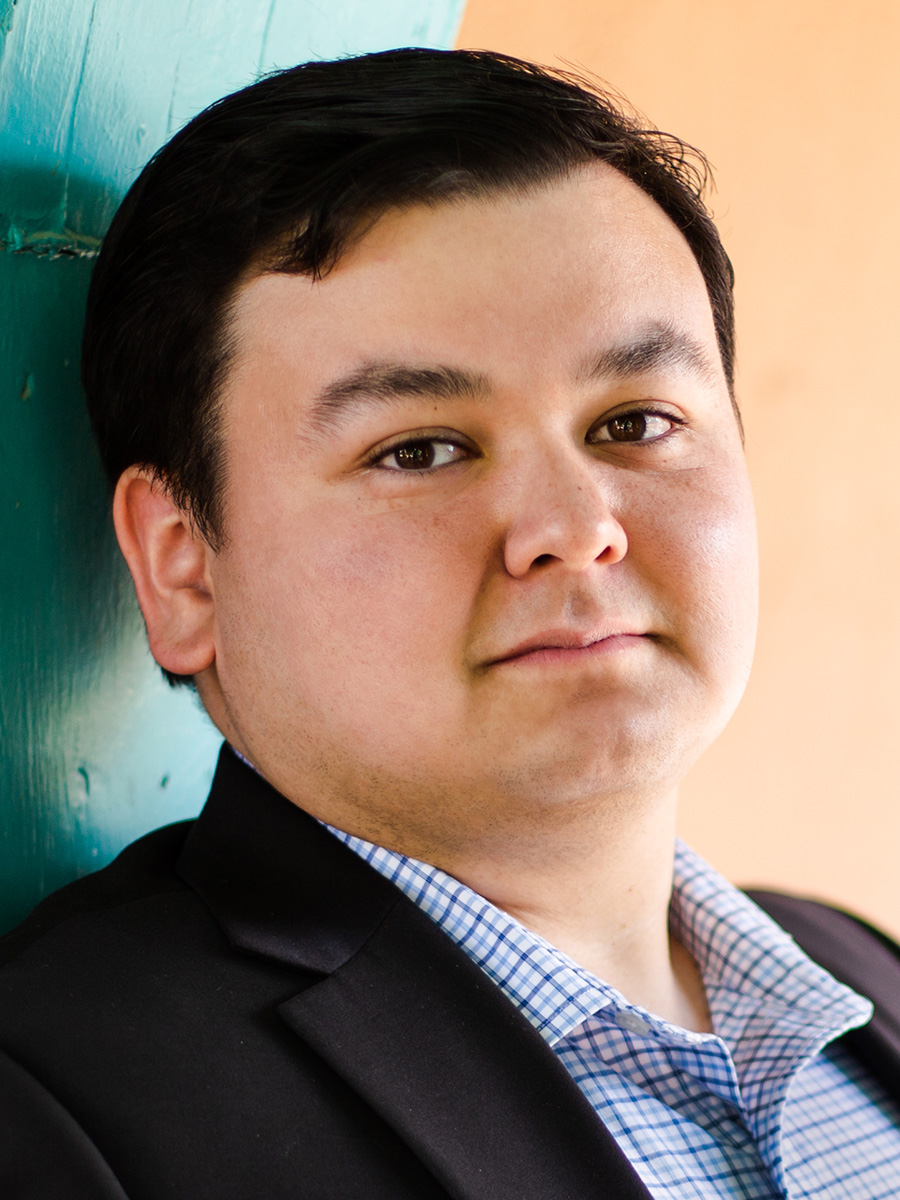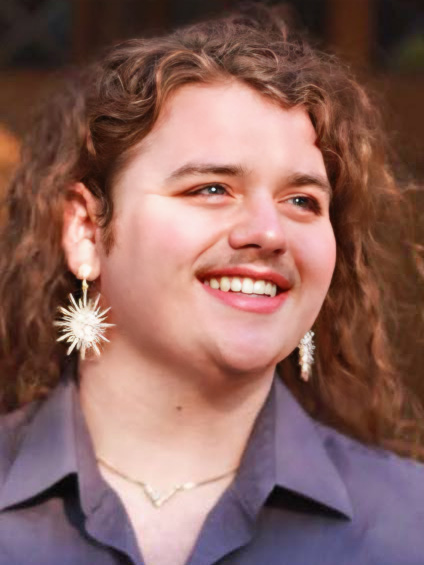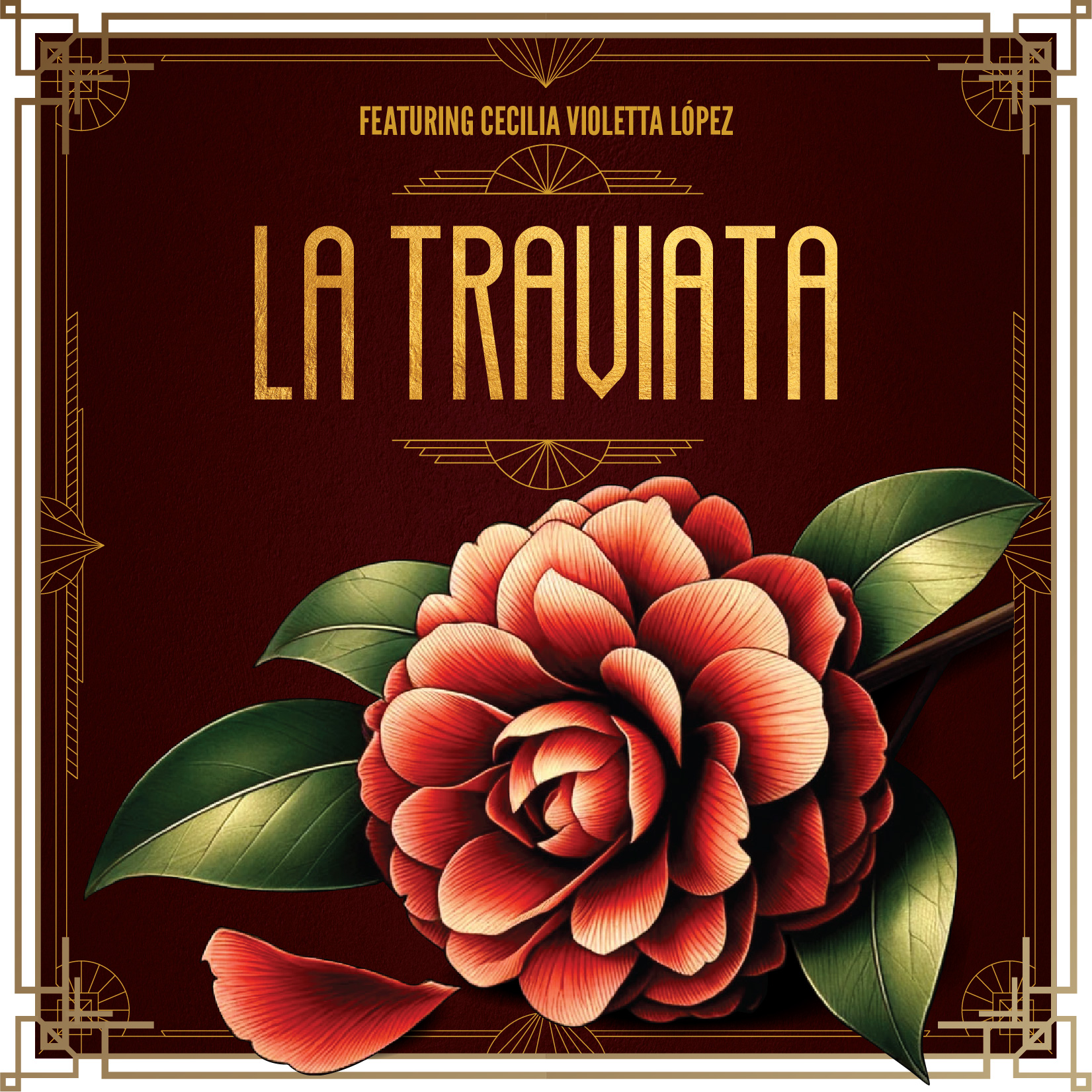
LA TRAVIATA
By Giuseppe Verdi
Sung in Italian, with English and Spanish supertitles
Friday, March 7, 2025 • 7:30 pm
Sunday, March 9, 2025 • 2:30 pm
The Egyptian Theatre
Based on La Dame aux camélias (The Lady of the Camellias), a novel by Alexandre Dumas fils.
Run Time: Approximately 3 hrs, including one intermission.
Enhance your Experience!
Operatini: La traviata
Enjoy a relaxed evening of live music, dining, and themed cocktails at Operatini. This special event features the cast of La traviata performing some of their favorite songs, including opera, musical theater, and jazz, alongside a delicious buffet. Whether you’re a longtime opera lover or just curious, it’s a great way to experience incredible voices in a casual setting with a drink in hand.
Thursday, February 27, 5:30 pm & 8:00 pm
The Sapphire Room in The Riverside Hotel, Garden City
5:30 show is nearly Sold Out! Act now, seats are selling fast for the 8:00 show.
Pre-Performance Dinner
Join us for an elegant pre-performance dinner before our mainstage productions. Mingle with fellow opera enthusiasts and enjoy a specially prepared meal. It’s a wonderful opportunity to meet and talk with the director and conductor of each production, as they are available.
Friday, March 7, 4:30 pm
Trillium in The Grove Hotel, Boise
About the Opera
Introduction
La Traviata is one of opera’s most beloved works, featuring Verdi’s lush music and a heart-wrenching story of love and sacrifice. Follow the journey of Violetta, a glamorous courtesan, as she falls deeply in love with Alfredo, only to face societal pressures and personal struggles that test the limits of their devotion. Full of unforgettable arias and emotional depth, this opera is a timeless masterpiece that continues to captivate audiences around the world.
Historical and Cultural Context
Verdi often based his operas on real-life stories or pre-existing works. La Traviata is adapted from Alexandre Dumas’s novel, La Dame aux Camélias, inspired by Dumas’s own experiences with the courtesan Marie Duplessis.
The opera premiered in 1853 at La Fenice Opera House in Venice, Italy. The opera was not received well. The audience did not appreciate the casting choices and even jeered at times during the premiere. The next day, Verdi wrote in a letter “La traviata last night a failure. Was the fault mine or the singers’? Time will tell.” Time fell in Verdi’s favor as it went on to become one of the most popular and frequently performed operas of all time.
In Popular Culture
Violetta’s aria “Sempre Libera” is famously featured in the film Pretty Woman, during the opera scene attended by the characters Edward and Vivian. The story’s themes have inspired various films, including The Bohemian Girl (1936) and Moulin Rouge (2001).
Cast
Artistic Staff
James Haycock, Scenic Designer
Keri Fitch, Costume Designer
Danyale Cook, Hair & Makeup Designer
David Goodman-Edberg, Lighting Designer
Nico Hewitt, Technical Director
Anthony Columbo, Production Manager
Alan Stogin, Stage Manager
Carlyn Jones, Assistant Stage Manager
Rachael Fry, Props Master
Betsi Hodges, Staff Pianist
Melanie Keller, Orchestra Contractor
Kelly Kaye, Chorus Master/Titles Operator
Opera Idaho Chorus
Soprano: Carley Ann Campbell, Kristen Dittman, BrieAnne Welch, Alana Seacord
Mezzo-Soprano: Gwen Delaney, Anthea Fisher, Melinda Harper, Savannah Stame
Tenor: Cody Bray, Derek Carson, Anthony Ames, Will Thompson
Baritone/Bass: Erik Noyce, Brayden Olson, Anders Tobiason, Gregory Watts
Dancers & Supers
Choreographer: Ashley Baker
Dancers: Anissa Bailis, Cameron Pelton, Elizabeth Kanning, Cyney Covert
Supernumeraries: Don Reiman, Patty Thomsen
Opera Idaho Orchestra
Violin I: Nicole Oswald1, Kathy Stutzman, Katherine Dickeson, Susan Courtial
Violin II: Dawn Douthit2, Paula Stern, Heather Calkins, Colleen Schoeck
Viola: KeAndra Harris2, Adele Rosen, Lydia Montague
Cello: Micah Claffey2, Stephen Mathie, Jake Saunders
Bass: Ryan Petriello2, Nathan May
Flute: Melanie Keller2, Nicole Molumby (piccolo)
Oboe: Ryan Klein2
Clarinet: Bryn Huntington2, Kevin Bolen
Basoon: Janelle Oberbillig2
Horn: Sean Pogue2, Jason Chilson
Trumpet: Derek Ganong2, Randy Bauer
Trombone: Sarah Paradis2
Timpani: Matthew Grady2
Percussion: Alan Salvador2
Keyboard: Betsi Hodges2
1 Concert Master, 2 Principal
Synopsis
ACT I
Violetta Valéry knows she will die soon, exhausted by her restless life as a courtesan. At a party, she is introduced to Alfredo Germont, who has been fascinated by her for a long time. Rumor has it that he has been enquiring about her health every day. The guests are amused by this seemingly naïve and emotional attitude, and they ask Alfredo to propose a toast. He celebrates true love, and Violetta responds in praise of free love (Ensemble: “Libiamo ne’ lieti calici”). She is touched by his candid manner and honesty. Suddenly she feels faint, and the guests withdraw. Only Alfredo remains behind and declares his love (Duet: “Un dì felice”). There is no place for such feelings in her life, Violetta replies. But she gives him a camellia, asking him to return when the flower has faded. He realizes this means he will see her again the following day. Alone, Violetta is torn by conflicting emotions—she doesn’t want to give up her way of life, but at the same time she feels that Alfredo has awakened her desire to be truly loved (“Ah, fors’è lui… Sempre libera”).
ACT II
Violetta chooses a life with Alfredo, and they enjoy their love in the country, far from society (“De’ miei bollenti spiriti”). When Alfredo discovers this is only possible because Violetta has been selling her property, he immediately leaves for Paris to procure money. Violetta has received an invitation to a masked ball, but she no longer cares for such distractions. In Alfredo’s absence, his father, Giorgio Germont, pays her a visit. He demands that she separate from his son, as their relationship threatens his daughter’s impending marriage (Duet: “Pura siccome un angelo”). But over the course of their conversation, Germont comes to realize that Violetta is not after his son’s money—she is a woman who loves unselfishly. He appeals to Violetta’s generosity of spirit and explains that, from a bourgeois point of view, her liaison with Alfredo has no future. Violetta’s resistance dwindles and she finally agrees to leave Alfredo forever. Only after her death shall he learn the truth about why she returned to her old life. She accepts the invitation to the ball and writes a goodbye letter to her lover. Alfredo returns, and while reading the letter, his father appears to console him (“Di Provenza”). But all the memories of home and a happy family can’t prevent the furious and jealous Alfredo from seeking revenge for Violetta’s apparent betrayal.
At the masked ball, news has spread of Violetta and Alfredo’s separation. There are grotesque dance entertainments, ridiculing the duped lover. Meanwhile, Violetta and her new lover, Baron Douphol, have arrived. Alfredo and the baron battle at the gaming table and Alfredo wins a fortune: lucky at cards, unlucky in love. When everybody has withdrawn, Alfredo confronts Violetta, who claims to be truly in love with the Baron. In his rage, Alfredo calls the guests as witnesses and declares that he doesn’t owe Violetta anything. He throws his winnings at her. Giorgio Germont, who has witnessed the scene, rebukes his son for his behavior. The baron challenges his rival to a duel.
ACT III
Violetta is dying. Her last remaining friend, Doctor Grenvil, knows that she has only a few more hours to live. Alfredo’s father has written to Violetta, informing her that his son was not injured in the duel. Full of remorse, he has told him about Violetta’s sacrifice. Alfredo wants to rejoin her as soon as possible. Violetta is afraid that he might be too late (“Addio, del passato”). The sound of rampant celebrations is heard from outside while Violetta is in mortal agony. But Alfredo does arrive and the reunion fills Violetta with a final euphoria (Duet: “Parigi, o cara”). Her energy and exuberant joy of life return. All sorrow and suffering seems to have left her—a final illusion, before death claims her.

